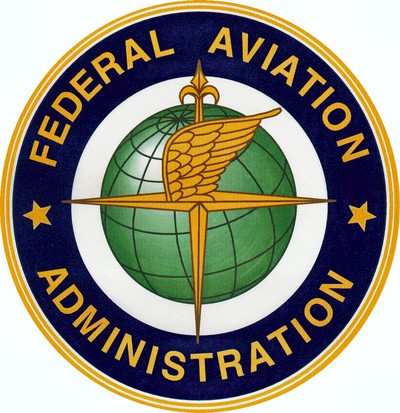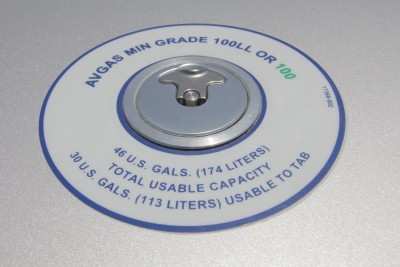Stakeholder Committee Recommends Collaborative Industry-Government Initiative To Facilitate Unleaded Avgas Transition
The FAA has published the final report and recommendations from the Unleaded Avgas Transition Aviation Rulemaking Committee (UAT ARC), a collaborative industry-government task force of key stakeholders representing aircraft and engine manufacturers, fuel producers and distributors, operator groups, aviation associations, the FAA and the U.S. Environmental Protection Agency (EPA). This group studied the challenges associated with the transition to an unleaded fuel to replace 100LL and made recommendations necessary to facilitate the development and deployment of an unleaded fuel with the least impact on the existing piston-engine aircraft fleet. The transition may still be years away, but this report charts a roadmap that identifies the essential elements that need to be addressed to make this happen in a way that maintains safety and the role government should play in minimizing the total cost.

The UAT ARC found that a "drop-in" unleaded replacement fuel that can be seamlessly deployed for the existing fleet of aircraft is not available and that alternative fuels require significant assessment to ensure safety. In addition, to date there is not a market-driven reason to move to a replacement fuel due to the limited size and specialty nature of avgas, combined with the safety, liability and expense involved with a complex approval and deployment process. After its own review, the FAA "found the information and recommendations contained in the report to be very helpful in understanding the challenges of transitioning the piston engine-powered fleet to an unleaded avgas."
The UAT ARC provided several recommendations and detailed action plans necessary to facilitate the development and fleet-wide deployment of an unleaded avgas. The group's five key recommendations are:
- Implement a fuel development roadmap for avgas readiness levels that identifies milestones in the aviation gasoline development process.
- Establish centralized testing of candidate unleaded fuels which would generate standardized qualification and certification data.
- Establish a solicitation and selection process for candidate unleaded aviation gasolines for the centralized testing program.
- Establish a centralized certification office to support unleaded aviation gasoline projects.
- Establish a collaborative industry- government initiative called the Piston Aviation Fuels Initiative (PAFI) to implement the UAT ARC recommendations to facilitate the development and deployment of an unleaded avgas with the least impact on the existing piston-engine aircraft fleet.

If recommendations are fully implemented and funded, up to 10 unleaded aviation gasoline candidates could be evaluated. Within five years, the process would generate qualification and certification data to support fleet-wide certification of the most promising candidates. The actual transition to an unleaded avgas depends directly upon the level of impact upon the existing fleet and fuel production infrastructure. Therefore, the UAT ARC recommendation includes up to six years for additional assessment and testing that may be necessary to facilitate a transition such as implementing approvals across the entire fleet, certification of modifications and changes to fuel production infrastructure.
The PAFI would rely on technical expertise from all stakeholders within industry and government. Centralized FAA testing of candidate fuels is essential to support an efficient fleet-wide qualification and certification, which is necessary for safety. Although this is just one part early in the process, this investment by the FAA will minimize the total cost of transition for both the FAA and industry. It also helps overcome significant market barriers, which will facilitate industry investments needed toward the development of unleaded avgas and transition of the entire fleet of aircraft.
This is a joint statement from the general aviation industry members of the Avgas Coalition, which includes the Aircraft Owners and Pilots Association, the Experimental Aircraft Association, the General Aviation Manufacturers Association, the National Air Transportation Association, and the National Business Aviation Association. This group applauds the FAA's leadership in establishing and participating in the UAT ARC and believes the recommendations are critically important to facilitating a transition to an unleaded avgas that works for the entire fleet. It will give owners and operators added confidence that the industry is on the right path to a solution.
The general aviation associations will continue to work with the FAA in developing, implementing and funding an unleaded avgas plan that includes the key elements outlined in the ARC's report that are necessary to facilitate the development and deployment of an unleaded avgas with least impact upon the existing piston-engine aircraft fleet.
The FAA says it is committed to developing a fiscally responsible action plan to meet the agency's goal of making an unleaded fuel available for most of the general aviation fleet to replace 100 octane low-lead (100LL) by 2018.
 ANN's Daily Aero-Linx (04.30.25)
ANN's Daily Aero-Linx (04.30.25) ANN FAQ: Turn On Post Notifications
ANN FAQ: Turn On Post Notifications Classic Aero-TV: Agile Aeros Jeff Greason--Disruptive Aerospace Innovations
Classic Aero-TV: Agile Aeros Jeff Greason--Disruptive Aerospace Innovations Aero-News: Quote of the Day (04.30.25)
Aero-News: Quote of the Day (04.30.25) ANN's Daily Aero-Term (04.30.25): Expedite
ANN's Daily Aero-Term (04.30.25): Expedite




